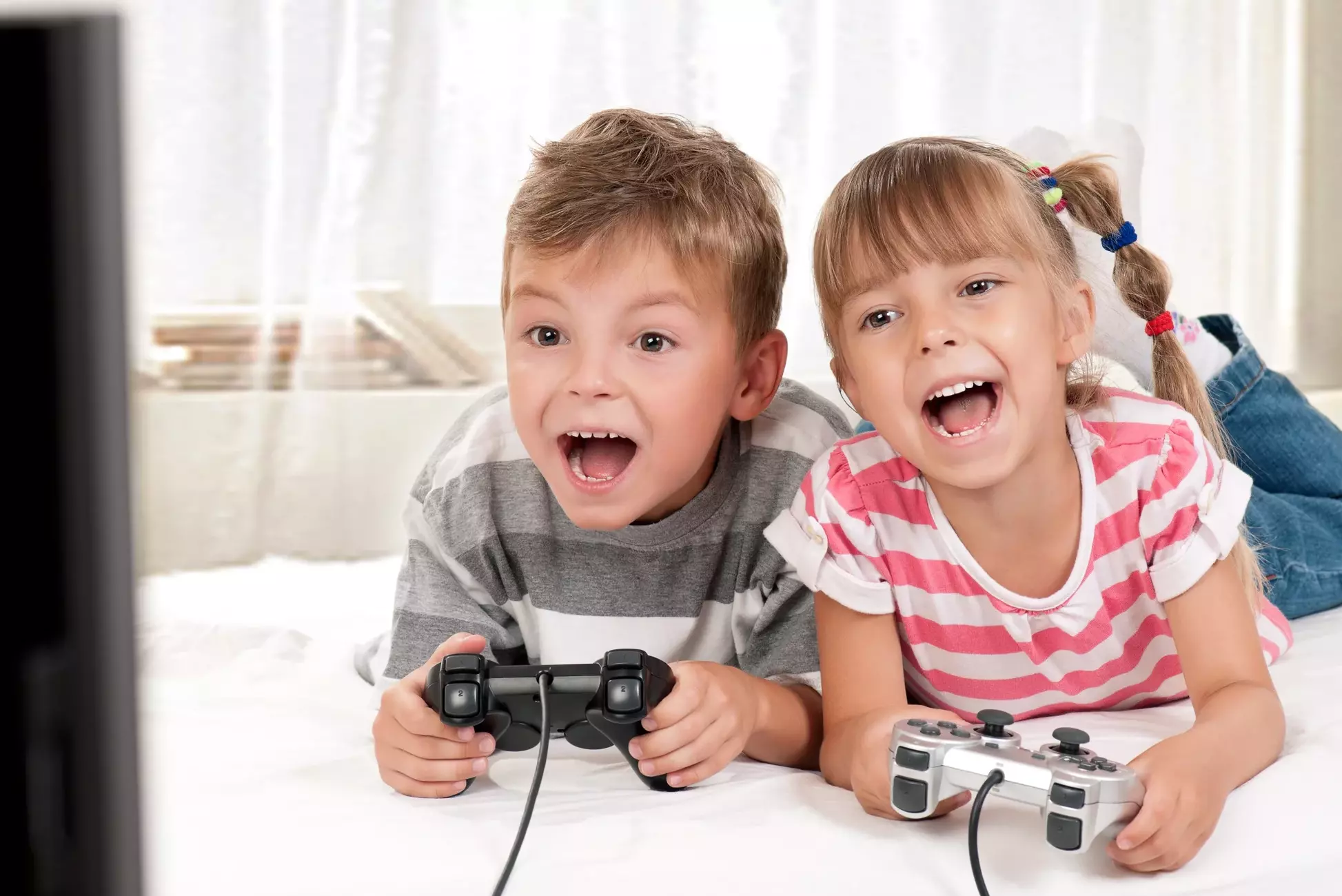When kids spend way too much time playing games, it can mess with them in a few ways. Like, their eyes might feel tired, they might not sleep so great, and they could get a bit moody. Excessive gaming can really affect kids. It is a growing concern due to its potential impact on their health and academic performance.
Parents and carers should be aware of the impact of excessive gaming on children, including negative impacts on social interactions, academic performance, and physical health. By addressing the gaming impact on kids, we can maintain a balanced and enjoyable life.
Signs of Excessive Gaming in Children
Parents must keep an eye out for physical indicators of excessive gaming in their kids, such as fatigue, eyestrain, or irregular sleep patterns, as well as indicators such as extended screen time and neglect of other activities.
Behavioural changes
Behavioural changes are the noticeable gaming impact on kids. One common sign is increased irritability and mood swings, where kids may become easily frustrated or agitated.
Since excessive gaming can divert attention from studying and schoolwork. Social withdrawal is a common side effect in children, where they prefer the virtual world over in-person relationships. To protect their wellbeing, it’s essential to monitor these behavioural changes and promote a balanced approach to gaming and other activities.
Physical signs
Physical changes are another negative impact of excessive gaming on children including tiredness, eyestrain, and headaches. Parents should monitor signs and encourage breaks for physical health.
The physical problems that arise from playing video games too much, such as eye strain, tiredness, and irregular sleep patterns, can have a detrimental effect on children’s general health.
The emergence of antisocial behaviour, emotional detachment, fewer in-person interactions, loneliness, and strained friendships and family ties are additional potential negative social effects.The social and physical effects of excessive gaming in children can be addressed by encouraging a healthy mix of activities and balancing screen time.
Risks Associated with Excessive Gaming
Impact on mental health
Overgaming can put children’s mental health at danger. As well as addiction, dependency, elevated anxiety and depression, and isolation to real-world events these are the major impact of excessive gaming on children.
Youngsters who have trouble in controlling their gaming habits may neglect their other obligations and pursuits. Their emotional health may be impacted by the social aspects of gaming or the pressure to meet in-game objectives. It’s critical to keep an eye on and balance kids’ gaming time if you want to guarantee their mental health.
Social consequences
Social consequences are another gaming impact on kids. includes fewer in-person interactions, and exhibition of antisocial behaviour. Youngsters may prioritise screen time over meaningful interactions, which could result in fewer in-person interactions.
Additionally, they may struggle with social skills and prefer the isolation of the digital realm. Balancing screen time and encouraging real-world social activities is crucial for healthier social development in children.
Solutions to Address Excessive Gaming
Establishing boundaries around gaming time, promoting a variety of hobbies, setting up a room for gaming under parental supervision, maintaining open lines of communication, and cultivating a positive atmosphere are all ways to counteract excessive gaming.
Establishing healthy gaming habits
To address the risk of gaming on kids, it’s essential to establish healthy gaming habits. Setting time limits, creating a daily schedule, and promoting outdoor activities are key strategies.
Balancing gaming with a variety of activities, both indoors and outdoors, fosters a well-rounded lifestyle. Smartdaddy is a parental control app, can help to monitor and manage a child’s gaming habits. By implementing these strategies, parents can mitigate risk of gaming impacts on kids and ensure a healthier and balanced development for their children.
Open communication with children
To combat the impact of excessive gaming on children, parents should open a non-judgmental space for open communication. And encourage your children to share their feelings and thoughts without any critisism. Parents should understand the reasons behind excessive gaming, such as boredom or stress, and actively listen and empathise.
Collaborative problem-solving is crucial, and children should be involved in decision-making about screen time limits and alternative activities. Maintaining open communication helps parents navigate the impact of gaming on children effectively and work towards a healthier balance in their daily routines.
Involvement of parents and guardians
To mitigate the gaming impact on kids, parental involvement is important. Monitoring and guiding gaming content ensures children engage with age-appropriate, positive games. Parents can offer alternative entertainment and educational options and encourage diverse activities beyond gaming.
Setting a positive example with responsible screen use sets a positive example for kids. Regular communication and varied activities contribute to a positive gaming experience and overall well-being for children.
The impact of excessive gaming on children has some critical results. This leads to signs such as increased irritability, academic decline, and social withdrawal. Risks of gaming on kids include strained relationships, reduced physical activity, and potential isolation. Explore effective strategies and practical tips on how to manage game addiction in children, fostering a healthy balance in their digital lives.
Establishing time limits, promoting a variety of activities, and encouraging open communication between parents and children are some ways to lessen the impact of excessive gaming on children. Maintaining a healthy lifestyle and keeping gaming as a positive aspect of development are ensured by a balanced approach to gaming. By understanding and implementing these solutions, parents can create a responsible gaming environment for their children.

